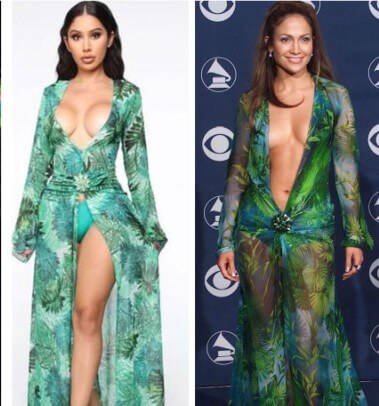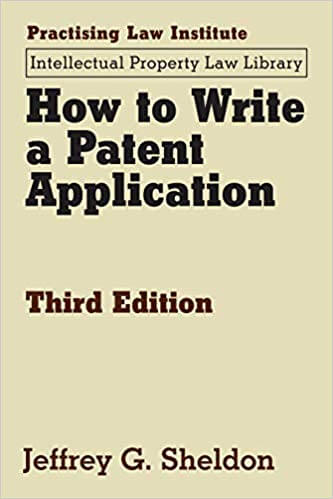Pinterest Sued for Promoting Copyright Infringement
Takeaway: Pinterest is facing claims of copyright and contributory infringement by photographer who claims Pinterest fosters infringement. Be careful not to use photographs or artwork without its creator’s permission.

Professional photographer, Harold Davis, sued the app developers for Pinterest in federal court, accusing the online platform of copyright infringement and contributory infringement. The complaint alleged that Pinterest encourages users to share images that have copyright protection without first obtaining permission from the copyright owners. The photographer claims that ten of his photographs are on Pinterest’s site without his permission. He additionally claims the social media platform sent emails to Pinterest users sharing his images encouraging them to save to their boards or share the photos with other users without authorization.
Davis believes that “Pinterest provides a mechanism for people to violate the copyright rights of others” and “. . . encourages the wholesale, unauthorized copying of photographs.” Davis is asking for statutory damages for willful infringement. However, Pinterest, a platform protected under the DMCA’s Safe Harbor and Fair Use Doctrine, may have a viable defense.
Taylor Swift’s Ninth Circuit Decision Amended to Emphasis Court’s Ability to Dismiss Meritless Suits
Takeaway: In copyright infringement suits over musical compositions, even though the test for originality of the plaintiff’s work ordinarily involves questions of fact, the judge was not completely barred from finding originality lacking as a matter of law or even lacking in the pleadings at the outset of a case.
The Ninth Circuit Court of Appeals last week issued an amended decision in the Sean Hall v. Taylor Swift case. Both the original decision and the amended decision reached the same conclusion, reversing the district court’s dismissal of the copyright infringement suit against the popular performer for lack of creativity, and both were designated “Not for Publication.”
So, why would we comment on a decision that has been designated not for publication? Because the Ninth Circuit apparently thought it necessary to amend a decision it had designated not for publication to remove the following language:
Originality, as we have long recognized, is normally a question of fact. See Dezendorf v. Twentieth Century-Fox Film Corp., 99 F.2d 850, 851 (9th Cir. 1938) (stating that the “question of originality . . . is one of fact, not of law” (internal quotation marks omitted)). Indeed, as Justice Holmes long ago cautioned:
It would be a dangerous undertaking for persons trained only to the law to constitute themselves final judges of the worth of pictorial illustrations, outside of the narrowest and most obvious limits. At the one extreme, some works of genius would be sure to miss appreciation. Their very novelty would make them repulsive until the public had learned the new language in which their author spoke. . . . At the other end, copyright would be denied to pictures which appealed to a public less educated than the judge. . . . [A]nd the taste of any public is not to be treated with contempt.
Bleistein v. Donaldson Lithographing Co., 188 U.S. 239, 251-52 (1903).
Justice Holmes’ century-old warning remains valid. By concluding that, “for such short phrases to be protected under the Copyright Act, they must be more creative than the lyrics at issues here,” the district court constituted itself as the final judge of the worth of an expressive work.
These two paragraphs had raised many eyebrows in the music industry and among copyright attorneys because it appeared to gravely limit the ability of a trial judge to function as a gatekeeper against copyright infringement suits having little or no merit. That is, although the test for originality ordinarily involves questions of fact, judges have, on occasion, found originality lacking as a matter of law or even lacking in the pleadings at the outset of a case.
Apparently, at least one Ninth Circuit judge found this language sufficiently troubling — even though it was ‘not for publication’ — to impress upon the Hall v. Swift panel to remove it. By removing this language from the decision, the Ninth Circuit panel appears to wish to ease concerns in the music industry and among copyright attorneys and ensure that it is sending a signal to would-be plaintiffs that the Ninth Circuit is not hostile to early resolution of copyright infringement suits that have no merit.
Amazon Develops Patent Infringement Dispute Resolution System

Takeaway: Amazon is developing a new program to help patent owners report potentially infringing products on Amazon’s website and take them down.
Amazon is responsible for almost half of American retail e-commerce. The website has been developing a new program known as “Utility Patent Neutral Evaluation.” The program permits patent owners selling products on Amazon.com to enforce their patents against potential infringers who are also selling products on the site. The program’s objective is to increase efficiency in decision making with regard to potential infringers and make the process affordable for patent owners who cannot afford to file a traditional patent lawsuit.
Currently, the program is invitation only, and the entire process of reporting to decision making takes roughly four months. Patent owners must contact Amazon and identify the potential infringers, the claim from their US utility patent they believed to be infringed, and the potentially infringing product’s Amazon Standard Identification Number. The patent owner then requests an evaluation and pays Amazon $4,000. Amazon then contacts the potential infringer and notifies them of the opened case and also requests $4,000. If the seller of the accused product does not pay Amazon $4,000 to participate in the program, Amazon will remove the seller’s listing from their website. Patent claims are then evaluated by an attorney of Amazon’s choice who then makes a decision as to whether or not infringement occurred. If the accused product is infringing, Amazon will remove the product within 10 days from its website.
Amazon’s program is meant to be more efficient than the traditional litigation process. Additionally, the decision is final, no appeals are permitted, and neither party to the program may contact the evaluating attorney. The successful party to the program also receives their $4,000 payment back and the remaining $4,000 is used to pay the evaluating attorney. Amazon’s program is not meant to replace the judicial system. Either party can still file an official lawsuit in court to obtain relief.
USPTO Reacts to Fraudulent Trademark Applications Cluttering the U.S. Trademark Register By Requiring Foreign Trademark Applicants to Use U.S. Counsel
Last week, the IP Subcommittee of the Senate Judiciary Committee heard testimony concerning fraudulent trademark applications, largely from China, that are cluttering the U.S. trademark register. In essence, a substantial percentage of trademark registrations from Chinese applicants are fraudulent, with fake specimens submitted to support registration. In many cases, these applications are advancing to registration. As a result, there are fewer trademarks available to use by genuine trademark applicants.
The USPTO is increasing scrutiny of specimens, and requiring non-U.S. applicants to use U.S. legal counsel to file trademark applications. From the Senate hearing, an additional suggestion was made to lower the standard for proving fraud when attacking a trademark registration. The bottom line is that this is a significant issue and trademark counsel should carefully review any marks used to refuse registration to make sure they are not bogus.
Versace Sues Fashion Nova Over J. Lo Look-a-Like Dress

Takeaway: Be careful how you seek your creative inspiration, and do not copy fabric prints.
The luxury Italian fashion brand, Versace, filed suit against Fashion Nova alleging copyright infringement. The suit was sparked by Fashion Nova offering for sale on its website a green jungle print dress strikingly similar to the famous jungle dress designed by Versace for celebrity Jennifer Lopez to wear at the 2000 Grammy Awards. The original Versace dress featured iconic prints and designs known to be featured in the Versace Spring-Summer 2000 collection.
Versace’s lawyers filed suit in the Central District of California claiming “Fashion Nova’s infringing apparel is plainly a deliberate effort to exploit the popularity and renown of Versace’s signature designs, and to trade on Versace’s valuable goodwill and business reputation in order to drive profits and sales to line Fashion Nova’s pockets.” Versace isn’t the first iconic brand to file suit against the online retailer. In fact, Fashion Nova has been sued at least eight other times over copyright-related matters.
Photo Credit: https://m.peepingmoon.com/amp/news-fashion/
Cislo & Thomas LLP Spotlight

Third Edition of “How to Write a Patent Application” by Jeffrey G. Sheldon, Esq.
Cislo & Thomas LLP Partner Jeffrey G. Sheldon has released the third edition of “How to Write a Patent Application” with the Practising Law Institute. This edition is stocked with drafting checklists, sample drafting language, documents, and drawings, as well as a step-by-step guide through the entire process of preparing patent applications.
Jeffrey’s new edition is available here on Amazon.
Also, feel free to call us or stop by for a copy of Jeffrey Sheldon’s book, “The Manager’s Guide to Intellectual Property: Second Edition.”
Enjoy keeping up with IP news?



